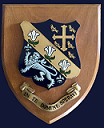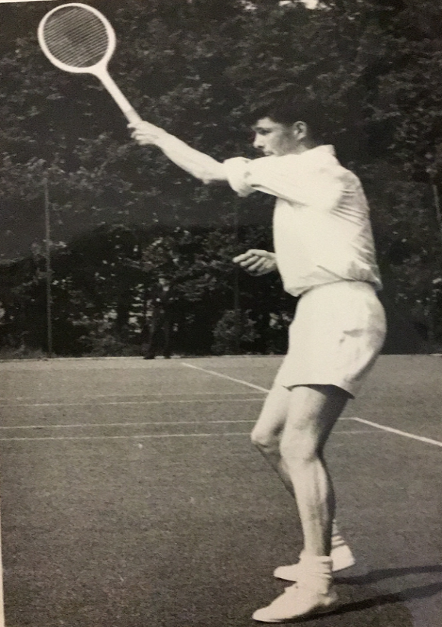
St Joseph's Society


Mgr. Breen was the Rector when I began in Low Figures, but my present memories are stronger when I entered the Higher Line. By then I was comfortable with the structure of College life, of liturgy, study, sports and other activities to fill the day and expand the person.
Fr. Snape directed us in the Schola pre-Vatican II, and using the Liber Usualis, we sang Mass chants, antiphons and psalms. Motets and other polyphony enriched the choral experience, and when singing in English, I remember the psalms by Gelineau.
Later, I played trombone in the College orchestra, under the baton of Fr d’Echevarria, and I still enjoy the trombone parts whenever I hear the National Anthem or Mussorgsky’s Great Gate of Kiev, for example.
I was also invited to join Fr Alston’s Sunday musical soirees, in which he explained what we were about to hear, played it, and then summarised what we had just heard!
After Vatican II, and the rebooting of the timetable, I remember going to the Philharmonic Hall by minibus (I might even have driven it!) to hear Britten’s War Requiem, with the composer present for the performance.
On leaving College, I was accepted into the Philharmonic choir, and there is no doubt that the training and the range of music sung in the Schola, eased my passage into the 2nd Tenors for four very happy years.
Sport played an important part in my College life. The House system was in use then. In Lower Line, I was in Mayne’s, with Fr Burke our House Master, and in the Higher Line, I was in Campion’s with Fr Cheetham leading us. I was then, and now, in awe at how Fr Shaw, with just a length of string and a battered old whitewash dispenser, could mark out a running track, bends and all, for Sports Day each year. Respect!
Football, rugby, cricket, tennis (not handball; I couldn’t get the hang of that!) matches, home and sometimes away, filled my timetable, and kept us all fit.
Then, there was the Infirmary, and the kind and gentle (hmmm?) ministrations of Sister Bonaventure, offering either an aspirin or a ‘kill or cure’ brown sticky liquid that tasted of liquorice, as the panaceas for coughs, colds, bumps, bruises etc., with quarantine the strategy for measles and chickenpox.
In Higher Line, I remember the Debating Society – ‘Is Blackpool the last resort?’ and so on. Fr Austin used to sit in here, I think, and in the Senior House, I remember appearing alongside Paul Borland in ‘Becket’ by Jean Anouilh and ‘Pygmalion’ by GB Shaw. Both plays, produced by Tom Leigh, had casts of over 25, with Green Room staff in addition.
The programmes and flyers were designed and printed by the College’s own Walthew Press (established by Fr Ibison in 1935). Managed by Fr Cheetham, Leo Stoker was my senior when I was invited to join the team.
Finally, in the Senior House, by the Top Lake, on Sundays after lunch, I remember the Catholic Evidence Guild, and learning the art of speaking about the truths of our faith before fellow students and the abiding presence of Fr Tom Worden. This led, in time, to speaking at Liverpool’s Pier Head, when I was so glad to have Peter Wilkinson on my shoulder in those testing, but exhilarating, moments.
With Sub Diaconate the next step, it was Fr. Worden who asked me to consider if priesthood was indeed my true vocation; and it wasn’t. I left College in early 1969, and in due course, I married. We have a family, and I spent a large part of my working life in the funeral service.
After retirement, I was one of the first group of Lay Funeral Ministers to be commissioned by Archbishop Kelly, and I am a trustee of a parish in the Archdiocese.
Overall, I feel so very fortunate to have been a student at St Joseph’s College, discerning whether I was called to the priesthood. It was, in the end, (correctly), not to be, but my formation and training for life could not have been so successfully replicated anywhere else.
Tempora mutantur etc., and the College was closed and sold. It is a sad spectacle, now fenced off and condemned ‘as unsafe!’ But for more than a hundred years, the College, and the life, did more than just produce priests. It offered an outstanding education, in all its forms, to laymen like me, and for that, and alma mater, I am forever grateful.